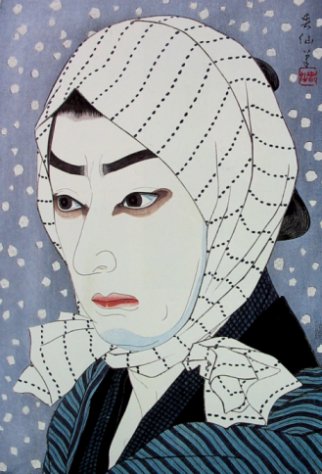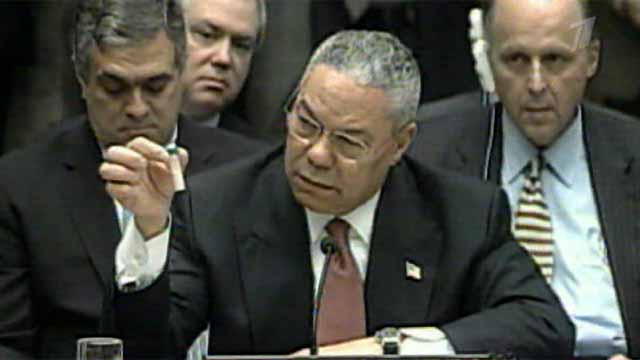f2014/07/02 6:49 に Fumi Hoshino が投稿 [ 2015/07/20 13:45 に更新しました ]
日本語はこちらです:戦争でだまされませんか? 70年経ってもホオカムリを見逃し続けますか?
Fumi Hoshino: 70 jaar later… from ernst de groot on Vimeo.
- Are you not going to be deceived about a war, if the leader of your country promote it convincingly?
- Several witnesses of history, who were deceived about the war
- Several deep troubles after people were deceived about a war.
- The Headscarves has been overlooked in Japan even 70 years after the war
- How can we avoid to be deceived?
1、Are you not going to be deceived about a war, if the leader of your country promote it convincingly?
This is the question I would like to ask to anyone in the world, especially Japanese, because they are right now in the middle of discussion if the Shinzo Abe’s cabinet may lift the ban on military intervention even if Japan are not under attack, for the first time after their aggression and capitulation of the WW2. I want them to think not only about Japan’s benefit, but also about how they can explain to neighboring Asia and the rest of the world as an offspring of old Japan, which once caused enormous damages and scars to Asia.
My answer now is that I wouldn’t be deceived and I would do my best to avoid others to be deceived to support a war because I studied so much about wars in the last 10 years. But before that I could be easily deceived because I knew too little.
Many Japanese don’t know so much about their own war, or they knew only a limited part of it, as I used to. They are even not aware that so many Japanese felt deceived when they lost the war. This is to warn them by sharing stories about a few witnesses of the war including my father.
2、Several witnesses of history, who were deceived about the war
This picture was taken around 1938 in a classroom of a junior high school in Chiba Japan, 70 km east of Tokyo. A student standing in the back low on the right end was my father. Please pay attention to what were hanged on the wall behind them.
I felt ashamed for not being able to go to the battle fields (like all of my friends). I went through a pathetic but also refreshing state of mind where I was making efforts to get better knowing that manly honorable death would be waiting after the recovery.
A deceased student (Kamikaze) pilot wrote a diary and it was published with a title “At the end of where clouds flows”. I remembered this author well. He was a classmate when I went to Kyoto for the first time in my life. Our seats were close and we started talking each other also because both of us came from areas around Tokyo. I didn’t have to die because I was ill. But when the war was over, what came to my mind first was ” I meet this day by failing to die.”
My mother told me after my father passed away 5 years ago that he didn’t like cherry blossoms in spring because they reminded him his deceased old classmates. He loved nature very much, especially the landscape covered with snow and ones with young fresh green in springs. When my brother and I were still little, he allowed us from time to time to skip school and the whole family went to mountains. We learned about beauties of mountains, streams, waterfalls and snow, and we still have many good memories. When he and my mother came to Europe he requested to go to the Alps and he really enjoyed watching the north face of the Eiger. I was surprised to learn about my father’s feeling about cherry blossoms, and to realize that he also had a scar of the war. Another old good friend of my father, with whom he went basic school and junior high school together, wrote the next poem. He must have shared the similar feeling about the flowers with my father, since I heard that he was in the Household troops to protect the emperor during the war.
I read most of the major magazines during the war. Writers of these articles p
atronizingly promoted the war and patriotism. After the capitulation I expected that they would take responsible actions like honorable Japanese Bushi’s (traditional samurai warriors) would do, but nobody satisfied my expectation except a few.Instead they changed completely as if nothing was ever happened. In my opinion they should not, at least, escape under Japanese Headscarves. They may cancel some points they made during the war or correct others, but should they have explained why they changed in an understandable way?
After this experience I began to wonder, when I see someone talking patronizingly, if he would change his statement if the time or the situation changes, if he will be willing to take responsibility about his present comments, of how deep he has ever really thought about it before he talks. But I also began hating myself thinking like that.
Many people say they were deceived during the last war. No one has yet stepped up and said he deceived us. Civilians believe that they were deceived by the military and bureaucracy, but those inside the military and bureaucracy will all point to their superiors and say they were deceived by them. I guarantee that those superiors will also point to their superiors. . . .A war cannot be started only by the deceivers. Both the deceivers and the deceived people are necessary to start a war and to maintain it. So the responsibility of a war should be laid to the both, maybe not equally to both. . . .The crime of those who were deceived was not only the fact that they were deceived, but also that they helped the entire nation’s cultural apathy and loss of self-awareness, self-reflections, and responsibility; the people lost their capacity to criticize, ability to think by themselves, and convictions, entrusting their whole selves to a blind obedience so completely that they were deceived just like that. . . . People who would say that they were deceived will probably be deceived over and over again.
Shigeaki Kinjo, an 85-year-ols Okinawan, gives lectures to share his personal experience during the battle of Okinawa in the spring of 1945. He and his brother killed their own family members in a cave as instructed by Japanese soldiers. When they were looking for a way to kill themselves, they saw that the Japanese soldiers didn’t commit suicide. He realized that Japanese soldiers had “a double standard – one rule for the civilians and another for the troops themselves – and then he felt a strong sense of betrayal.”
When the picture with my father was taken in 1938, no Japanese realized about deception. At the beginning the war they saw only success and celebrations. You see on the left the front page of a major newspaper, Mainichi, in 1937 reporting: “Banzai! (Bravo) Imperial Army’s big success to conquer Nanking”, the former capital of China.
More than 20,000,000 lives were lost in Asia during the war, which the
Japanese military started, but later millions of other Japanese followed and joined. This is clearly irrevocable and unjustifiable loss. This is not the only irrevocable loss; phisical and psycological scars of the war are still remaining decades after the war; never-ending protest on Comfort Women/ sex slaves by South Korea, China, and the rest of the world. My father also carried such a scar, too: remembering his deceased classmates every time he saw cherry blossoms.- Insanity: doing the same thing over and over again and expecting different results. A. Einstein
You still remember the presentaion by the former US Secretary of State
, Colin Luther Powell, at the UN council just before the resolution to attack Iraq. He conviced the whole world that Iraq posessed weapons of mass destruction and therfore the rest of the world should attack Iraq to eliminate them. (I read a Japanese diet member, Sei-ichiro Murakami, saying that Powell himself was deceide by CIA.) In a hall where he held a press conference after that speech, Picasso’s Guerunica was hanged on a wall. That painting illustrated the civilians casualties of the Nazi’s bombing at the village of Guernica in Spain and it symbolized the sprits of the main purpose of the UN; no more war. But the painting was covered during that press conference, where a war was justified again with lies and deception. This lie became a scandal only later, but even then nobody was counted for responsibilities, not him, no one in the any allied government or army.- Before Japanese capitulation in 1945 (Japan had a right to start a war like others still do.)
- After 1945 as a result of the first aspect (Japan abandoned all means of force as the consequence of their previous aggression, but later interpreted that they may protect themselves in case they were under attack.)
- Present situation (Do they really need or deserve the right to fight again?)
After the debut in the competitive world in the end of 19 century, Japan made efforts to make their country prosperous and strong by following the Western method at that time, imperialism. But they focused only to their interest and paid too little attention to the interests and human rights of other East Asian people. They became one of the most dangerous and aggressive country in the world, and caused tremendous damages in the region. U.S. and other allies suffered with Japan’s cruelty but managed to win against it. After the war the U.S. occupied force intended to destroy the dangerous fangs in Japan to eliminate the fear for the future of the world. For that reason they made the peace constitution and forbad Japan to use military forces ever again. Japanese people welcomed it because they were tired of the war and sufferings, although they were not yet aware of the aggression of thier army. When they learned about it later, to respect article 9 of the constitution became the way for conscientious Japanese to express remorse and regret about their aggression during the war. They became pacifists and started developing a new culture to respect peace.
In this sense these Japanese people have already began taking off the Headscarves. For them Abe’s proposal to allow Japan again to engage in a war is not acceptable. I don’t have enough understanding to describe the post-war period of Japanese government, but I see little signs of taking off the Headscarves except Murayama- and Kono statements. They hardly confront with the aggression of their forefathers, and they seem to maintain the deceptive structure where they manipulate only the convenient and comfortable information only for themselves.
I believe that the peace formula of Joahan Galtung, who is regaraded as a father of peace study, is quite useful in this case, again. I shared this earlier in this blog, too.
Territorial growth of the USA You can see the details at the link.














Leave a Reply
You must be logged in to post a comment.